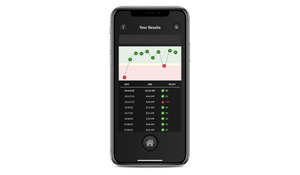A common subject of discussion in the workplace safety arena is the changing legal status of cannabis (marijuana) in many parts of the United States. Although there may be pros and cons to marijuana's legalization and many Americans favor it, many employers, workplace safety professionals, lawyers, and journalists are skeptical, if not downright anxious, about how marijuana's legalization may affect safety in American workplaces. But an issue with this skepticism and anxiety, however, is that the feelings are held without due consideration for the hazards to workplace safety already posed by common circumstances, only because they are not taboo or have not been illegal, and so the impact of legal marijuana becomes exaggerated to seem like a problem that employers would never be able to manage.
For instance, a recent article by Nina French takes a somewhat alarmist tone, warning employers to "get out your checkbooks" to pay for the cost of marijuana's legalization on their business operations. Her article dismisses the view that marijuana's legalization is beneficial to be a mere assumption held by its supporters, but at least one of her counter-arguments is also an assumption (and she even tells us so): "It is fair to assume that, as marijuana continues to be legalized, its costs will begin to equal or surpass those of alcohol." It is unclear why one assumption should be considered fairer than the other, unless French's reader already agrees with her. It is unfortunate that working while fatigued does not carry the same taboo as testing positive for marijuana by a urine test, when fatigue is a much more significant factor in workplace accidents.
French's statement at the same time demonstrates that alcohol is costly to society. Yet people who are skeptical of, or advocate against, the legalization of marijuana don't also seem to want to diminish alcohol's legality for the same reasons. If marijuana's costs could "equal or surpass those of alcohol," why has there been no outcry against alcohol's legal status also, to save the associated costs which are known and do not have to be assumed?
The answer to this question lies in the fact that people have biases, and these biases make us resistant to change and less able to visualize a different paradigm. For many of us, marijuana has been illegal for our entire lives. Its illegality made it taboo, and its taboo nature made us have negative associations with it and the people who used it. On the other hand, tobacco and alcohol have always been legal for us, and for many of us, alcohol may be a staple of our daily routine. Some of us may have entire hobbies surrounding alcoholic beverages, happy to discuss the subject while showing off our wine collections or home brewing kits. Yet alcoholism, drunk driving, liver disease, and other problems associated with alcohol consumption are both known and common, and like fatigue, alcohol factors into workplace accidents more than marijuana or illicit drugs. But our biases make us focus on that which has been taboo. It is unfortunate that working while fatigued does not carry the same taboo as testing positive for marijuana by a urine test when fatigue is a much more significant factor in workplace accidents.
The purpose of this blog post, however, is not necessarily to create an argument against French and people who may share her skepticism and alarm, but instead to illustrate that this argument does not need to really occur in the first place. In the workplace safety arena, the nature of this conversation can change. Consider this: Workers can still lose their jobs for having smoked a joint a few days before a random drug test, but coworkers feeling under the weather but not up for a random drug test can take a drowsiness-inducing OTC medication before a shift on heavy machinery. Plus, even if there were a drug test, it may not be made to detect the particular chemicals in the employees' medication. In such a scenario in a "traditional" work environment, there may be nothing preventing legally drugged and drowsy workers from undertaking safety-sensitive job tasks, and marijuana's legalization doesn't change this. Common causes of impairment and workplace incidents, like fatigue, are not commonly screened for in safety-sensitive workplaces or jobs, but there is no comparable outcry or alarmist rhetoric against allowing fatigued employees to start work.
A lot of trouble can be spared if we discontinue focusing on the presence of certain substances in body fluids and their legal statuses, and remember that many substances and circumstances, legal and otherwise, can cause cognitive or physical impairment. A relative few of these substances can be detected in a workplace drug screen, so drug screens put undue emphasis on certain substances while downplaying or ignoring other causes which could be just as impairing, if not more so.
The argument that marijuana's legalization would lead to rise of impaired workers is a slippery slope fallacy based on an assumption that drug use is, or would be, a common factor in workplace incidents. But it is not, and never has been. Some might argue that this is true because of drug testing, but drug testing programs were historically not implemented in response to an epidemic of drug-impaired workers. Instead, employers simply followed the government's lead following the Federal mandate for drug testing government employees in the 1980s, part of the large anti-drug campaign under the Reagan administration. Drug testing programs were implemented by private companies largely for improving or protecting company reputation and image, not as a safety measure.
If a company encountered a problem with employees drunk on the job, the company would handle the problem internally; it would not start a campaign against alcohol's legalization. In the same way, if drug-impaired workers are an issue at a particular workplace, it is not the fault of the drugs' legality. It is true that many companies are seeing a rise in the number of employment candidates testing positive for marijuana at pre-employment drug screens, but it is nearly common knowledge now that a positive test for marijuana is not also an indication of present intoxication or impairment. Companies facing this problem can institute pre-shift alertness testing to ensure employees are not impaired at work. Better yet, they can start alertness testing before such problems arise.
It is not necessary to continue having arguments and anxiety about the impact of marijuana on workplace safety; organizations can instead implement solutions that actually address the problem of reducing impairment at work, whatever its cause. Predictive Safety is eager to help you reduce impairment risk among your workforce, so get in touch today.



